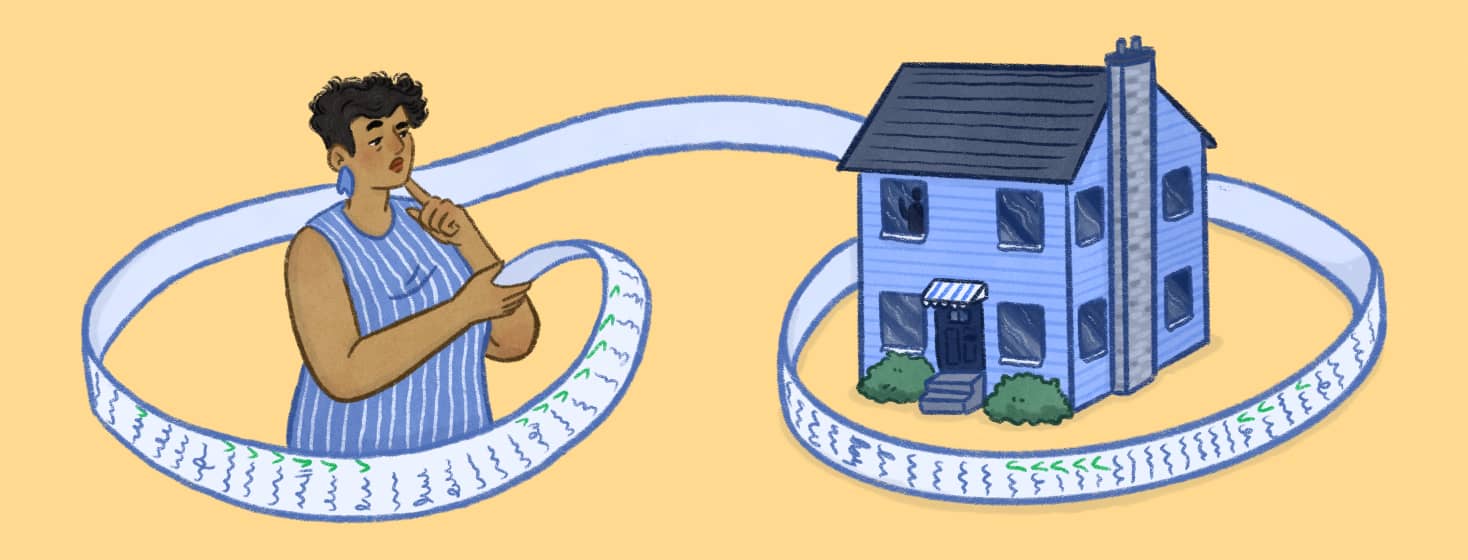When Is It Time To Move My Loved One With Dementia out of Their Home?
In the beginning, I was a long-distance caregiver and helped my mom from states away. Then, one day, we woke up and knew it was time to move her out of her home. Just kidding. I wish it had been so easy.
A difficult and multi-layered decision
In real life, it was an agonizing period of about 3 years, where one day I’d wake up and feel confident that Mom would be able to live alone forever with the right services and people to help.
Then, the next day, I’d be panicking about her possibly letting dangerous strangers in or giving away large sums of money over the phone to scammers. I lost a lot of sleep during that time.
I had no idea what the pros and cons list was supposed to look like before we determined she couldn't live alone in her home anymore. I tried to figure out what was best for her and what was realistic for me, especially while living far away and raising a family of my own.
Can someone make the decision for me?
One of my brilliant ideas was that maybe someone could decide for me! I spent many hours on the phone with Mom's doctors, lawyers, neurologists, and the Alzheimer's Association 24/7 hotline experts, trying to get them to tell me what to do—ha! They couldn't make that decision for us, of course, but all of those are great resources for caregivers, and they did give me a lot of guidance.
Many people living with dementia can and do continue living at home with assistance from caregivers, home health aides, and nurses. Other services are available to the elderly and disabled, like Meals on Wheels. My mom's situation didn't allow for that, but I wished it could have.
Learning about ADLs and IADLs helped me make a decision
Ultimately, what helped me work out a decision was learning about the Activities of Daily Living (ADLs). It might seem like common sense, but seeing these written down helped me objectively assess what Mom needed help with and decide when she truly wasn’t able to live alone anymore.
ADL is a term identified by Dr. Sidney Katz in 1950. To put it simply, ADLs are skills needed to care for a person's basic needs. They include dressing, eating, continence, toileting, ambulating, and personal hygiene/grooming.1
Doctors still use the Katz Index of Independence in Activities of Daily Living to assess elderly patients and plan their care.2
Then there are the Instrumental Activities of Daily Living (IADLs). These require more complex thinking and organization than ADLs. IADLs include skills needed for an individual to live independently in a community. For example: shopping, preparing meals, transportation, managing finances and medications, house cleaning, home maintenance, and laundry.
The complex activities are affected first
In patients living with dementia, IADLs are the first to decline, while basic ADLs are usually unaffected.3
This is consistent with our experience. My mom exercised regularly and had no trouble walking. She didn't have issues with cooking or personal hygiene. But she started getting lost going to familiar places and couldn't keep up with house repairs and cleaning.
Declines in IADLs or ADLs are not always clear-cut. A person's abilities are usually self-reported, and many times someone living with dementia does not believe they have any problems, or they simply overestimate their own abilities.
Tools for caregivers to help identify declines
This makes it even more important for caregivers to keep an eye on their loved ones. Sometimes the changes are subtle, but family members know their loved ones and can sense when things have shifted.
We've had great doctors who respect my mom, but I had to advocate for her many times. Her doctor would be satisfied with my mom's answer that "everything is fine" and move on to the next thing.
I didn't want to embarrass my mom, so one tool I used was a typed sheet of paper outlining my concerns, which I privately handed to the doctor or the nurse. I could share details about the IADLs I observed declining to help her healthcare providers get a fuller picture of her.
Knowing when to move a loved one with dementia
When the time finally comes for your loved one to move out of his or her home, don't expect everyone to be supportive. I tried my very best to get input and advice from family members and close family friends—keeping them updated on how Mom was doing and what concerns we had.
But when the day finally came, it was hard on everyone, and some people took out their grief and frustration on me. It wasn't easy, and on top of my own stress with the decision, I also had to cope with disappointment from people I loved.
In the end, I knew I was doing the best thing for Mom and my family. I had explored every option, and this was the right one. Of course, I won’t do everything perfectly, but I can sleep at night knowing that my mom is safe and living her fullest life.
Tell us about your experience with moving a loved one with dementia out of their home in the comments below, or share your story with the community.

Join the conversation